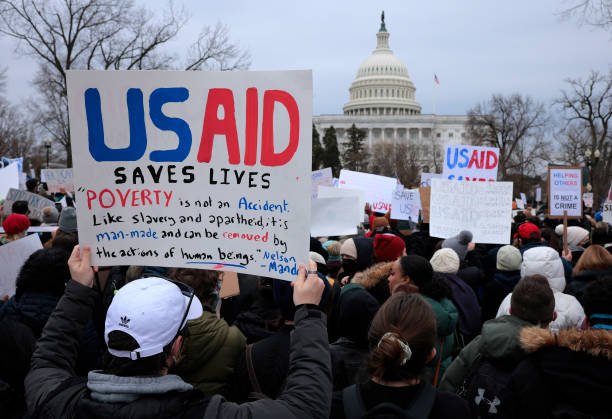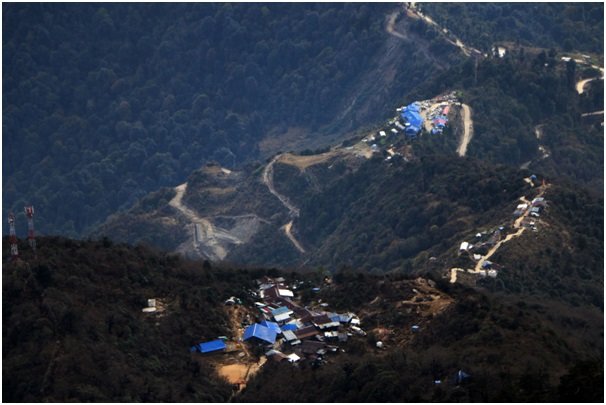COVID-19 AND UROLOGY PRACTICE IN NEPAL

It is important to discuss how the rapidly changing circumstances surrounding the COVID-19 crisis require doctors to be flexible in order to protect both their patients and the healthcare providers themselves.
Further discussion about importance of understanding the capacity of ICU beds, respirators, and Personal Protective Equipment (PPE), particularly the N95 mask should be done.Urologists should follow the recommendations of Government of Nepal, Centers of Disease Control (CDC) and American Urological Association(AUA) to stop performing elective procedures, but that in cases of metastasizing cancers doctors need to weigh the need for the surgery against the possibility of contracting COVID-19 while the patient is in recovery in the ICU.
We have learned important lessons from other countries. Some of them have proved themselves good to stop the further spread of the disease; some of them have been defeated in terms of controlling this disease just because they did not take the consequences seriously in the beginning.
It is important to understand the disease. As soon as we have an idea of fever, cough and shortness of breath, primary symptoms of COVID 19 which may last for 14 days after the exposure; it is important to understand how to protect ourselves. All we need to seek for the arrangement of N-95 mask and PPE. We should know exactly what sizes which may fit exactly to our face and body. We should strictly follow the updated guideline available readily in the different websites.
Urological Issues during COVID-19 in Nepal
There is ongoing lockdown countrywide. Almost all the hospitals in Nepal are limited with the provision of semi-services. Doctors and other co-health workers are accepting the lockdown discipline of the government. Rescheduling of the elective cases has been done everywhere. In spite of everything, we have similar issues almost everywhere in the countries regarding our urological patients. Every one of us might be facing the similar problems. All I have done is writing about those issues in a piece of paper. We are responsible for dealing these types of patients;
1. Routine Out patients: We request them to stay at their home and kindly wait for settlement of everything.
2. Elective Urological Surgeries: We have postponed them until reschedule. We admitted risk reducing strategiesfor already planned few cases.
3. Urological Inpatients: We have discharged our almost all inpatients from the hospital except some needy. We are regularly going to the hospital for the daily rounds.
4. Urgent and semi-urgent urological issues: We are attending 24 hours phone call of such cases and entertaining them with possible tele advice and needful medications. If necessary we are asking them to get admitted at nearby health centers and proceed for the needful interventions.
5. Urological Cancers: We performed few urological cancer surgery on semi- emergency basis. Our routine follow up of cancer patients have been rescheduled. Those patients under ongoing chemotherapy are getting the medications according to their planned schedule.
6. Urological Trauma: Since there is lockdown everywhere, We have not received any call of emergency urological trauma case.
What do urologists need to do for managing the urgent urological cases?
Telemedicine Practice
We can discuss telemedicine strategies for urology practices to help them cope with the COVID-19 crisis. Telemedicine has been recommended by the CDC as part of the COVID-19 response, and federal regulations have been relaxed in order to broaden access. There is recommendation of checking with both malpractice insurance as well as the different payers to ensure that telemedicine is covered before incorporating it into practice. There are several platforms that doctors can quickly integrate into their practice and explains how they work. One can easily imagine how easy they are to use for the patients and for the doctors, as well as some essential differences, specific requirements, and limitations of the telemedicine platforms.
It is highly recommended that the benefits of being a member of a physician community where doctors can support each other and discuss how to get through these difficult times. It is important for Nepalese urologists to understand how the COVID-19 pandemic has impacted telemedicine in urology from the examinations and recommendation of CDC. Recent need to keep as many patients out of the office as possible has accelerated the uptake of telemedicine in many practices and led to insurance companies relaxing regulations on its use.
It is importantfor older patients, including assigning a telemedicine manager of choosing a good platform and overcoming technical challenges. CDC further outlines the different types of telehealth consultations, from a quick check-in to a full visit, as well as requirements for visit time and audio-visual connections and concludes the article with information about billing and coding telehealth visits and how urologists can be properly reimbursed. Documentation of every attended call should be done.
Managing Emergency Surgery
CDC & AUA have provided some guidance about managing the emergency cases. We should always think about preserving the resources and capacity of hospital in this difficult lockdown. All the elective cases must be postponed for reschedule. Risk reducing strategies should be applied in them with planned surgery like Ureteral stenting for some needy cases. Many of us might be getting calls for the DJ stent removal from the patients whom we have already stented for many purposes. We can deal the patients over phone call and can categorize the patient accordingly. For those emergency urological including emergency cancer surgeries, patient must be informed well about the possibilities of prolong hospital stays, ICU shift, chance of COVID-19 infection during hospital stay. This is very difficult aspect of the current situation and medical challenges. They may consequence difficult conditions. Other health staffs should be educated about COVID-19 and how to protect themselves. They should be well informed about the screening, prevention and protection from COVID-19.
Managing Urological Cancer Patients
People with cancer appear to be at increased risk of COVID-19, and their outcomes are worse than individuals without cancer. The NCCN Member Institutions are rapidly gaining experience in preventing and managing COVID-19. They are sharing their experience in organizing and managing institutional and care systems responses and best practices in this rapidly evolving global effort. Most cancer treatments will go ahead as normal during few week lockdown.
Routine chemotherapy will go ahead, while some other treatments may change, or be deferred, depending on each individual patient. Appointment of routine non-urgent consultation and non-urgent follow up of cancer patients can be delayed. We must be especially diligent about screening for symptoms and exposure, and we must recognize that our older patients with cancer may be especially vulnerable.
Patients with cancer who are in active treatment are immunosuppressed and are more susceptible to infection and to complications from infection, while we don't yet have much data on how COVID-19 impacts patients with cancer, we can simply suspect that patients undergoing active cancer treatment may be especially vulnerable to the more severe illness associated with COVID-19.
Those in active treatment are screened by telephone 24 to 48 hours before arrival, after which they undergo a full risk assessment in an isolation room. Those with a respiratory infection are given a mask. Each of those patients must be treated as they are positive case.
Needy patients are also advised to follow some informative blogs and websites like Centers of Disease Control (CDC) and American Urological Association (AUA). They will be benefitted well.
After all everything is going in a good way even during this stressful crisis. Things might be the reflection of automatic adjustment. Things are getting adjusted itself. Nepal Association of Urological Surgeons (NAUS) should publish a circular about the issues of managing such urological cases. Countrywide, the number of urologists might be enough to manage this difficult situation. All everyone might be looking for formal guidance from our national society.
FCPS Resident Urologist
Nepal Mediciti Hospital






Leave Comment